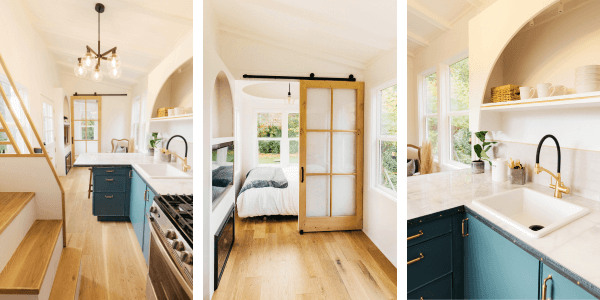In recent years, there has been a surge of interest in alternative housing options such as tiny homes, moveable dwellings, and cabins. With the promise of cost-effective living and simpler lifestyles, it’s no wonder these innovative housing solutions have captured the public’s imagination.
However, the road to achieving these dreams can be challenging, particularly when it comes to understanding the intricate web of legislation governing property development in Australia.

Growing in Demand
At Council Approval Group, we’ve witnessed firsthand the growing demand for affordable housing solutions and the challenges that arise in bringing these visions to life. While the desire for affordable accommodation is commendable, our experience has shown that legislative frameworks have yet to catch up with the community’s aspirations.
Understanding the Legislation
One of the primary hurdles we encounter is the confusion surrounding various statutes, including the Environmental Planning and Assessment Act (EP&A Act), the Local Government Act, and the Motor Transport Act. These laws intersect and overlap, creating a complex regulatory landscape for those seeking to embark on alternative housing projects.
A key takeaway from our extensive experience is that dwellings such as tiny homes, studios, or container homes cannot override the provisions of the Environmental Planning and Assessment Act. This legislation dictates the number of dwellings permissible on a given allotment of land, irrespective of their size. Whether you’re considering a secondary dwelling or exploring multi-unit housing options, compliance with the EP&A Act is paramount.
Moveable Dwellings
Moveable dwellings, on the other hand, fall under the purview of the Local Government Act. While this legislation does not explicitly provide approval for moveable dwellings, it offers provisions for secondary dwellings, which may include moveable structures. However, obtaining approval for such dwellings may require navigating additional regulatory requirements, such as obtaining a Section 68 Certificate for onsite disposal.
The only way to avoid the planning need for an extra dwelling is for the proposed unit to be, in fact, a registered trailer/caravan on wheels (fully road registered under the Motor Transport Act). In that case, there are restrictions as to how long the caravan can be occupied on site. The time frame varies and is set out in Clause 77 of the Local Government (Manufactured Home Estates, Caravan Parks, Camping Grounds and Moveable Dwellings) Regulation 2021.
Proceed with Caution (& Due Diligence!)
In light of these complexities, our advice to prospective homeowners is one of caution and due diligence. Before investing in a tiny home, container home, or similar product, it’s essential to undergo a thorough assessment of its suitability for the intended site. Too often, individuals are enticed by manufacturers’ promises without fully understanding the regulatory hurdles they may face.
The help you need…
This is where Council Approval Group can help. Our team of expert town planners specialise in conducting Preliminary Planning Assessments to determine the feasibility of alternative housing projects. By engaging our services early in the process, clients can gain clarity and confidence in pursuing their housing aspirations.
In conclusion, while the path to affordable housing may be challenging, it is not insurmountable. With the guidance and expertise of Council Approval Group, individuals can navigate the complexities of legislation and unlock the door to their dream home.
Don’t let regulatory hurdles stand in the way of your housing aspirations—reach out to Council Approval Group today and embark on the journey to affordable living.
Article Last Updated: 28 June 2024

